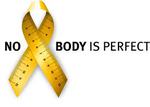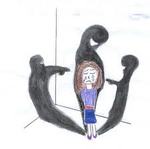Issues
What are some of the issues Depression Eating Disorders Self Esteem Panic Attacks Anxiety Bereavement Anger Management Stress Sexuality Relationship Breakdown Loss of Direction Self Harm Loss of Employment Relationship Problems Bullying Dyslexia/Learning difficulties Work Related IssuesTherapies
Cognitive Behavioural Therapy (CBT) Bereavement Counselling Individual one to one Counselling and Psychotherapy Person Centre Therapy Humanistic Therapy Reality Therapy/Choice TheoryIssues
What are some of the issues
The counselling service is an opportunity to deal with a large a range of issues including, but not limited to:
-
Sexual/Physical/Emotional abuse
-
Family/Parenting concerns
If you wish to contact us to make an appointment you can contact me on 086 341 1449.
Depression
Does low mood affect your thoughts, behavior, feelings and sense of well-being?
if you are depressed or suffer with low mood, you may feel sad, anxious, empty, hopeless, worried, helpless, worthless, guilty, irritable, hurt, or restless. You may lose or have lost interest in activities that once were pleasurable, experience loss of appetite or overeating, have problems concentrating, remembering details, or making decisions, and may contemplate or attempt suicide.
Have you experienced, Insomnia, excessive sleeping, fatigue, loss of energy, or aches, pains, or digestive problems that are resistant to treatment may also be present.
If you have or have experienced any of the above don't dispair, Counselling and other psychological treatments have been found to be very effective in people with mild to moderate depression. Advice and support is an important part of helping all people with depression, no matter how mild or severe their symptoms may be. Certain therapies such cognitive behaviour therapy and interpersonal therapy can be effective.
Eating Disorders
Eating disorder refers to a complex, potentially life-threatening condition, characterised by a disturbances in eating behaviours. You may have been using an eating disorders as a way of coping with emotional distress, or as a symptom of underlying issues. Eating disorders are not primarily about food, you can recover from eating disorders and they can affect anyone.
Eating Disordered behaviours can be a variety of things including :
- Self-starvation - by fasting or food restriction
- Purging, self-induced vomiting, over-exercising, or laxative abuse
- Bingeing - by consuming quantities of food beyond what the body needs to satisfy hunger
An eating disorder can be very destructive, both physically and emotionally, and you could get trapped into the destructive cycle of an eating disorder without knowing how to cope.
An eating disorder is not just about food and weight, but also about a your sense of who you are. Treatment of an eating disorder will might require both physical and the emotional part of you.
An eating disorder may have an impact on the family and friends of the person who is struggling with disordered eating. There are a number of eating disorders including Anorexia, Bulima, Binge eating disorder among others.
You may have suffered from:
- have dieted
- have low self-esteem– though this may not be obvious, as people who develop eating disorders are often ‘high achievers’
- show a marked over-concern with body shape, weight and size, and an obsession with food
- see thinness as a magical solution to problems, while weight gain is feared
- have difficulty identifying and expressing their real needs
- view their body as larger than it actually is
- have problems around control
- find it hard to talk about their feelings and to deal with conflict
- be depressed and may become isolated
- experience mood swings
Through Counselling and Psychotherapy
- You would tackle the underlying emotional problems
- Challenging the beliefs and attitudes sustaining the behaviour
- You could explore your relationships and your relationship with food
Self Esteem
Experiences in a persons life have a major source of the development of their self-esteem. The positive or negative life experiences you have, creates attitudes you have about yourself, which can be favourable and develop positive feelings of self-worth, or can be unfavourable and develop negative feelings of self-worth. In the early years of your childhood, parents have the most significant influence on self-esteem and the main source of positive and negative experiences you will have in later life. The importance of developing a stable sense of being cared for and respected while young.
During the school years, academic achievement can significantly contribute a postive or negative development of self-esteem. As a student consistently achieving success or consistently failing, affects your self-esteem. Social experiences are another important contributor. As children we go through school beginning to understand and recognise differences between yourself and other children. Using social comparisons, we assess whether we do better or worse than those in our class in different activities. These comparisons play an important role in shaping the self-esteem and influences the positive or negative feelings we have about ourselves. As we go through adolescence peer influence becomes much more important, as adolescents assess ourselves based on our relationships with their friends. Successful relationships among friends is very important to the development of high self-esteem for us. Social acceptance bring a sense of confidence and produces high self-esteem, compared to rejection from a peer group alone side loneliness brings about self-doubts and contributes to low self-esteem.
Parenting style can also play a crucial role in self-esteem development. Students in early schooling who have high self-esteem tend to have parents who are caring, supportive adults who set clear standards for their child and allow them to voice their opinion in decision making.
Childhood experiences that contribute to healthy self-esteem include being listened to, being spoken to respectfully, receiving appropriate attention and affection and having accomplishments recognised and mistakes or failures acknowledged and accepted. Experiences that contribute to low self-esteem include being harshly criticized, being physically, sexually or emotionally abused, being ignored, ridiculed or teased or being expected to be "perfect" all the time.
Through therapy for self esteem, therapists work with people to identify the cause of the emotional turmoil and set goals that will enable them to feel empowered and help them regain control. If the source of the problem is job related, then a therapist may focus on setting career related goals. If the lack of self-esteem comes from a divorce, a therapist may recommend that the client begin setting goals to discover who they are as an individual, apart from their spouse.
If you are struggling with feelings related to low self esteem and feel you would like to talk to someone. you can contact us.
Panic Attacks
Panic reactions often necessary for survival. When a threat is presented to you your natural instincts kicks into action. You get a sudden adrenalin rush which gives you the strength to get out of the impending harm. When you are safe adrenalin rush subsides and your heart rate and breathing will return to normal.
When you are having a panic attack, you are having similar symptons. In a panic attack the fear at times is unfounded, and your body has gone into panic reactive mode.
People with panic attacks experience some of the following symptoms:
- hot and cold sweats
- dizziness
- palpitations
- breathlessness
- fear of passing out
- fear of losing control
- chest pain - fear of heart attack
- nausea
- trembling or shaking
- headaches
- speecheless
Often it can be a thought that triggers a panic attack. The trigger can be internal or external, things like a memory, taste, smell, place, music, event or sound can be a trigger.
There are ways to challenge your thinking around panic attacks from there onset.
There are a number of strategies and tools we can explore together to help you to find relief from feelings of intense Anxiety and Panic:
Psychotherapy works with the underlying causes that may be contributing to your panic and anxiety. You may need to explore your past relationships, early personal difficulties and childhood development. Feelings such as anger, shame or low self esteem may have been hidden for some time and can contribute to your anxiety and fear. A good image for Psychotherapy is an Iceberg which floats on the surface of the water. We actually only see one third of the iceberg on the surface but two thirds of it is hidden under the water. In Psychotherapy we gently and respectfully explore the part under the surface.
Anxiety
Anxiety is the body’s natural response to danger, an automatic alarm that goes off when you feel threatened, under pressure, or are facing a stressful situation.
In moderation, anxiety isn’t always a bad thing. In fact, anxiety can help you stay alert and focused, spur you to action, and motivate you to solve problems. But when anxiety is constant or overwhelming, when it interferes with your relationships and activities, it stops being functional—that’s when you’ve crossed the line from normal, productive anxiety into the territory of anxiety disorders.
Physical symptoms of Anxiety
Anxiety is more than just a feeling. As a product of the body’s fight-or-flight response, anxiety involves a wide range of physical symptoms. Because of the numerous physical symptoms, anxiety sufferers often mistake your disorder for a medical illness. You may visit many doctors and make numerous trips to the hospital before your anxiety disorder is discovered.
Common physical symptoms of anxiety include:
|
|
Once you have been told that the symptoms you are experiencing are due to anxiety, there is good news, anxiety is highly treatable! The recommended treatment for anxiety is Cognitive Behavioural Therapy (CBT). CBT is a short term model of therapy and addresses both the physical and psychological symptoms of anxiety.
CBT for anxiety looks at your thought process and memories. It looks at your behaviour. Often we adapt our behaviour when we feel anxious, you may start to avoid certain things that you believe may make you feel more anxious. You might start to develop what are called safety behaviours. For example you may always carry water with you in case your mouth becomes dry.
Bereavement
The loss of a loved one through separation, divorce or death can be a traumatic life event and can cause a major emotional crisis. It is important to remember that these intense feelings of loss are normal – there is a grieving process, which differs for everyone, and recovery can be slow and painful. If you feel you can’t cope and need help talk to your doctor and look at the different support services that are available.Bereavement can have a serious impact on our mental health. When someone dies, we enter the process of grieving. There is no right or wrong way to grieve and we can experience a wide range of emotions as we come to terms with someone’s death
Normal feelings include:
- being stunned at the loss
- longing for the person who has died
- anger towards yourself
- guilt over a last encounter or what you would have liked them to know
- sadness or depression.
It is not unusual to think you hear or see the person who has died. This can be part of the grieving process.
Anger Management
Anger is a very powerful emotion that can stem from feelings of frustration, hurt, annoyance, or disappointment. It is a normal human emotion that can range from slight irritation to strong rage.
Suppressed anger can be an underlying cause of anxiety and depression, Anger that is not appropriately expressed can disrupt relationship, affect thinking and behavior patterns, and create a variety of physical problems. Long-term anger has been linked to health issues such as high blood pressure, heart problems, headache, skin disorders, and digestive problems. In addition, anger can be linked to problems such as crime, emotional and physical abuse, and other violent behaviour.
Anger is normal, healthy emotion. Anger is a warning signal that a person feels there is somthing not right about the situation. Anger can have good and bad results. Good outcomes of anger is that it motivates you to achieve better things and setting yourself higher goals. While negative effects of anger result of loss of control, lose of friends or relationships, low self esteem, depression or addiction. It is when the negative expression of anger are taking control that you may consider your actions.
Stress
Stress is psychological and physical strain or tension generated by physical, emotional, social, economic or work related circustances that are difficult to manage. If you struggle with stress over longer periods of time or a number of stressors it can lead to further difficulties like burnout or breakdown. Stress can have huge impact on our mental health.
Research suggests that stress contributes, in several illnesses, athough the illnesses can also have other physical causes as well. A link exists between stress and headaches, asthma, cardiovascular, hypertension and the immune system.
Stress can also result in behavioural responses including confrontation, withdrawal and avoidance. The response to stress impairs task performance. Emotional responses include anger, hostility, embarrassment and depression.
Sexuality
Sexuality is about how you think, act and feel. Part of your sexuality is your sexual identity. During puberty and our teen years we start to explore our sexuality and to figure out what we like.
You might feel unsure about your sexuality or who you find attractive might change during your life. Your sexual identity is something you should take time to decide about: what you like and feel comfortable with is different for everyone.
Some people may know from a very young age that they are gay, lesbian, bisexual or transgender and others may be confused about their sexuality right into adulthood. Working out whether you are gay, lesbian, bi or straight can be confusing. You don’t have to tell your friends anything about your sexuality or who you fancy unless you want to, but remember it does help to talk.
Coming out as LGBT can be a hugely positive experience – a liberating time, when you embrace your sexuality. Telling friends or family is not always easy but if you choose someone you trust, the chances are they will be supportive. Whatever your sexual identity, remember it is only one part of your life; so embrace how you are feeling and enjoy being individual.
It is important that you feel comfortable with your sexuality. This can take time, so don't worry if you don't feel completely comfortable If you need to talk to some one in confidence, there are people you can talk to.
Relationship Breakdown
The end of a relationship comes with alot of emotions such as denial, anger, guilt, rejection, sadness, regret, depression and anxiety. These are all normal reactions and the order or intensity of these emotions can vary depending on whether you were the one to instigated the separation or the one who has been left. In either case it can be difficult to know how to move on and what to do next and there may be a lot of mixed feelings and uncertainty, which can be very stressful.
Some people will feel deep down that their relationship is not saveable, that there is no hope in stay together. It is natural to want to ignore these feelings initially, as any alternative to being together is too hard to understand. Little by little it becomes harder to avoid recognising that the relationship is not retrievable and sadly, this is sometimes only recognised by one party, the other person in the relationship may not share the same feelings or want to talk about separating.
Separation is difficult, not just for the couple themselves and any children that may be involved but also for the wider circle of family, friends and colleagues.
It is hard to look on when someone you know has separated and they or their children are finding it difficult to cope. As someone who cares, their pain and distress will have an impact on you too and you may also experience similar feelings of loss, anger and anxiety.
Grandparents, parents, siblings and close friends especially may be drawn into the situation and feel under pressure to ‘sort things out’ but be unsure what to do and experience a sense of powerlessness and frustration
Loss of Direction
What kind of satisfaction can you get from your current situation?
How can you expect to be happy if you’re stressed or depressed?
If you or a family member or friend are unhappy with life, could it be because you don’t have a direction or sense of purpose in life? Because you wake up in the morning with no goal to work towards, hoping that it will just knock on your front door?
You may very well have many dreams and wishes, but without knowing what you want, you’re not going to be able to work towards it. If you would like to explore what your dreams, wishes or desires are, so you can then work toward them, we can always talk to a support service like counselling to see where your life might may go in the future.
Self Harm
Do you self harm?
We know that intentionally hurting yourself can be a way to express difficult emotions. Self-harm might be your way of releasing pent-up feelings of distress or anger. Maybe it’s the only way you know how to cope. But there are other ways of coping.
Why don’t you tell a friend about what’s happening? You might be worried about their reaction and afraid they’ll think you’re just looking for attention. They will likely to offer you support, kindness and compassion.
Does someone you know self harm?
Many people do things that they know are harmful to themselves to help them to cope with difficult emotions or experiences. This might be eating or drinking too much or taking drugs. Sometimes people intentionally harm themselves for the same reasons.
If someone trusts you enough to confide in you about their self-harm, you can start to help them by listening, respecting, continue to love them and offer compassion.
Loss of Employment
During the last few years and tough economic times, the reality is that the recession are creating a lot of anxiety and suffering. For many who have lost their jobs it can be a traumatic and devastating experience. It’s hard to imagine, but the loss of a job is similar to other losses in life such as a death, a divorce or breakup. Your daily routine and day to day habits are suddenly gone. You feel disoriented, aimless and lost.
According to experts a job is more than simply a means to an end or just a paypacket at the end of each week or month, the loss of a job is one of the most devastating losses that a person can experience. So much of our identity, our self-esteem, our self-respect is directly connected to what we do for a living.
Being laid off or being made redundant is difficult, and it’s a huge blow to your self-esteem. Even if people have had notice or are aware that there are lay off pending, when it happens, It is a met with shock and trauma, the natural responses are fear, anger, sadness, and depression. There is feeling of disorientation and loss of direction. There is a tendency to beat ourselves up about it, we often expect ourselves to act as though everything is fine. Unfortunately, people actually prolong those difficult feelings when they feel ashamed. Then, they try to suppress the emotions.
For those that have been out of work, there are many common and natural emotions ranging from fear, loss of identity, shame/embarrassment, abandonment, anger and rejection. Many times these emotions lead to a loss of self esteem and confidence and are replaced with destructive negative self thought.
It has been suggested that the best way to regain some focus and balance is to take immediate proactive steps. Nothing helps boost self-esteem, energy and motivation more than being proactive.
If you have been affected by any of the negative self destructive thinking and need to talk to someone. There is support available.
Relationship Problems
Relationship problems can occur for many reasons - from poor communication to differing expectations and a myriad of life events and experiences. No relationship runs smoothly all of the time. If we recognise this and try to manoeuvre through the difficult times together, then it is possible to remain together in a warm and loving relationship.
Relationship problems can occur for many reasons - from poor communication to having different expectations. No relationship runs smoothly all of the time. If we recognise this and try to handle difficult times together, then it’s possible to remain happy together in a long-term relationship. If you and your partner feel you can’t work out your problems together, talk to someone outside the situation. Counselling can help people to be honest about their feelings
Some relationships unfortunately do come to an end and the reasons can be many. How we cope will have an impact on our mental health as well as those around us.
It can be difficult to adjust to new circumstances and this can affect our mental health.
Worrying about the impact of relationship break-up, separation or divorce on children can add to the stress of the situation. Family or relationship counselling can help in coping with relationship problems. Sometimes, however, relationships cannot be fixed and professional support can help you to cope with this situation.
Bullying
One would think that as people mature and progress through life, that they would stop behaviors of their youth. Unfortunately, this is not always the case. Sadly, adults can be bullies, just as children and teenagers can be bullies. While adults are more likely to use verbal bullying as opposed to physical bullying, adult bullying exists. The goal of an adult bully is to gain power over another person, and make himself or herself the dominant adult. They try to humiliate victims, and show them who is boss.
Dyslexia/Learning difficulties
At times do you feel frustrated at being held back, knowing your capable of more and not understanding why?. Do you feel your not learning the same as everyone else. Do you notice that as an adult at times, what should be an easy day to day task you struggle with. Does it cause you frustration or anxiety.
Research suggests that people with dyslexia struggle with self-image, they appear to be extremely vulnerable to frustration and anxiety. According to Erik Erikson, during the first years of school, every child must resolve the conflicts between a positive self-image and feelings of inferiority. If children succeed in school, they will develop positive feelings about themselves and believe that they can succeed in life.
If children meet failure and frustration, they learn that they are inferior to others, and that their effort makes very little difference. Instead of feeling powerful and productive, they learn that their environment controls them. They feel powerless and incompetent.
Depression is also a frequent complication with dyslexic students. Although most dyslexics are not depressed, children with this kind of learning disability are at higher risk for intense feelings of sorrow and pain. Perhaps because of their low self-esteem, people with dyslexia are afraid to turn their anger toward their environment and instead turn it toward themselves.
Anxiety is the most frequent emotional symptom reported by dyslexic adults. Dyslexics become fearful because of their constant frustration and confusion in school. These feelings are exacerbated by the inconsistencies of dyslexia. Because they may anticipate failure, entering new situations can becomes extremely anxiety provoking.
Work Related Issues
Many people struggle in the work place at different stages of our working life. Difficulties in work could be as a result of any combination of reasons, low self esteem, bullying, communication, physical or mental health, burnout, stress, lack of training, staffing issues.
If you are struggling with any range of issues and need independent, confidential counselling service or support there are always options.



















